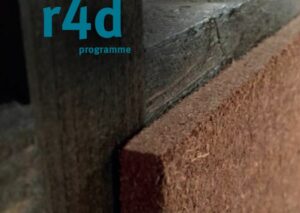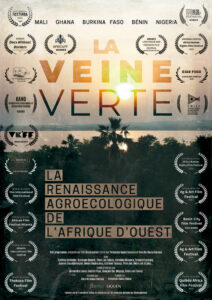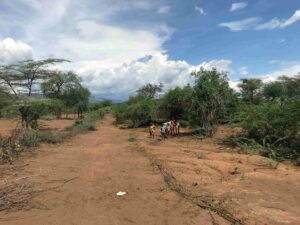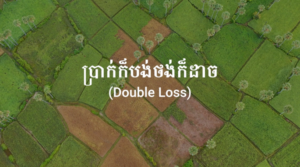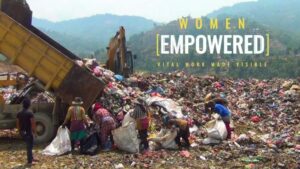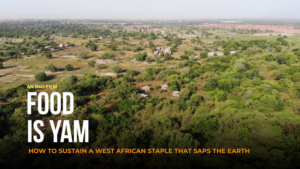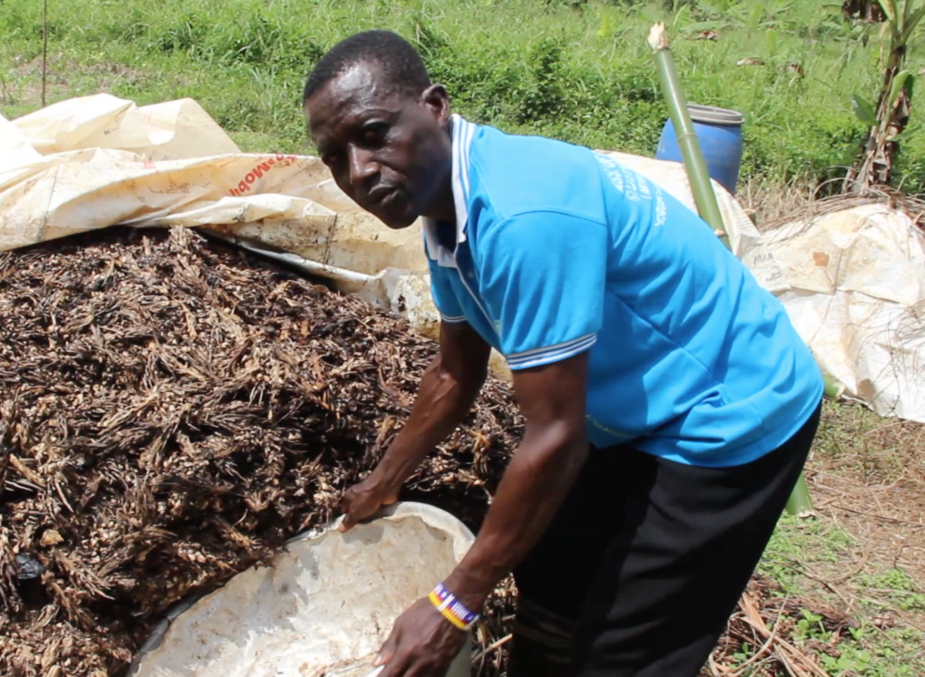
Ventures for richer soil: Turning organic leftovers into compost in Ghana
It takes about four years before the typical oil palm bears fruit. That’s when the tree grows its giant fruit bunches, each carrying hundreds of oil-rich kernels.
“I don’t know if you have seen it,” says agroecology researcher Fernando Sousa, arms stretched to scale. “The ‘pod’ is big and woody, so when you remove the seeds from it to extract the oil, you have what they call the empty fruit bunch.”
Palm oil is one of Ghana’s main cash crop exports. When fully mature, the average oil palm tree is ready to harvest every two weeks on average. And for every kilogram of oil pressed out of the fruit kernels, the tree produces some 4 kilograms of dry biomass waste – empty fruit bunches that are usually left unused. “[It’s] the same for the cocoa pods,” says Sousa of the discarded leathery capsules wrapped around cocoa beans, another of Ghana’s top exports.
But to the eyes of scientists concerned with declining soil fertility, vast quantities of pod husks and empty fruit bunches become precious organic resources with the potential to replenish the land and boost agricultural productivity across Sub-Saharan Africa.
That’s the ambition behind ORM4Soil, a project designed to promote techniques that build soil fertility in Ghana as well as Kenya, Mali and Zambia. “The idea was to use those resources and integrate them in the agricultural system,” says Sousa, who co-runs the project with senior scientist Andreas Fliessbach, both from the Research Institute of Organic Agriculture (FiBL) in Switzerland.
In Ghana, the research team set out to work towards this vision in partnership with farmers in Kade, a town of just over 15,000 people in the south.
Then a caravan came to town, and things took an unexpected turn.
“By creating bridges you allow the flow of ideas, but also collaborations”
Fernando Sousa, Research Institute of Organic Agriculture
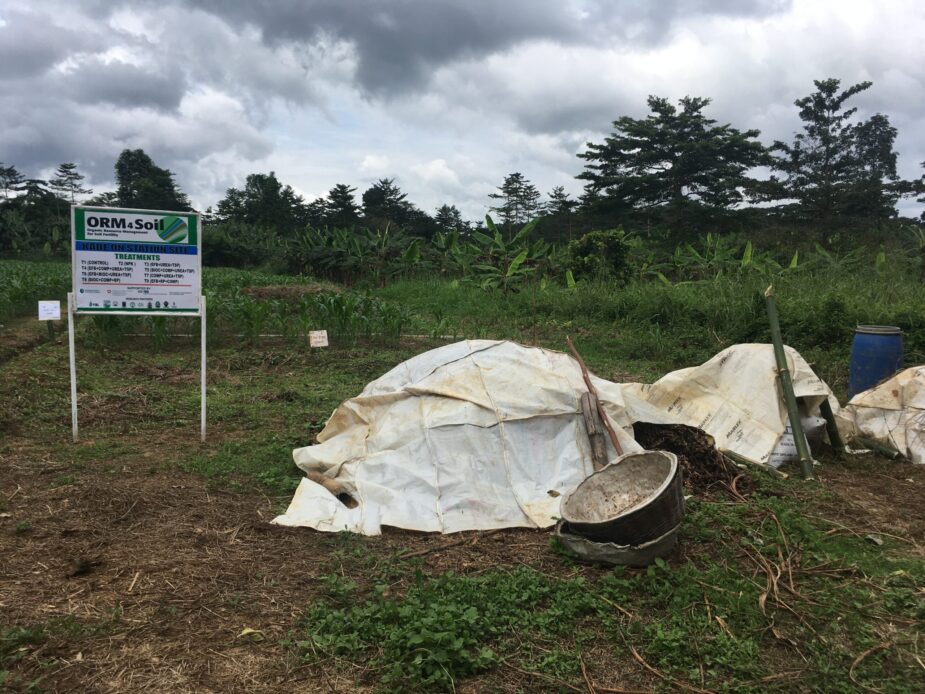
Picture 1: Organic materials ready to be used. Credit: Sara Baga
Making a connection
There was more than one project looking to make the most of organic waste to restore soils in the region – all with support by the r4d programme, a joint initiative by the Swiss Agency for Development and Cooperation and the Swiss National Science Foundation.
At first, each team kept to their own patch.
“If I look back to the interactions between the projects, they were relatively small,” says Fliessbach. “Only the Food Systems Caravan and Fernando brought them together.”
Somewhere along the way, Sousa had teamed up with filmmaker Sara Baga and got on board the Food Systems Caravan media initiative for a 50-day tour of r4d-funded food sustainability initiatives across West Africa. As it collected footage for a documentary, The Green Vein, the caravan spread the message of sustainable agriculture in the region and forged links between the projects.
“The film brings all the ideas very nicely together,” says Fliessbach. “But it also brought people together.”
Another one of the r4d projects – IFWA, coordinated by Marc Kenis of CABI Switzerland – was looking into how insects such as the black-soldier fly could be used to produce affordable protein-rich feed for poultry and fish reared on small farms in Benin, Ghana and Burkina Faso. Fly larvae feed on organic material – already in ample supply on the farms. The research set out to test whether this type of on-farm feed production is viable, and the practicalities of how it could be done.
A separate project, also run by Fliessbach in Ghana, had a similar mission: using organic material left behind in local markets to rear black soldier-fly larvae, which helped the production of compost as well as animal feed. A partnership with the private company West Africa Feeds brought in processing technology and the prospect of production at scale.
“It was a lot about building bridges,” says Sousa of what the Caravan brought to the table. “By creating these bridges, you allow for the flow of ideas, but also new collaborations.”
One of the collaborations borne out of the process now aims to pull together lessons learned from the three projects. The goal is to build a movement and scale up the methods they developed to integrate organic resources into local agriculture.
“The empty fruit bunch or cocoa pod compost is perfect – very high quality”
Godfred Ofosu-Budu, University of Ghana
From waste to quality compost
For years now, the need to feed a growing population in Sub-Saharan Africa has pushed farmers to intensify agriculture or expand their cultivation into new areas. But that strategy has reached its limits. It has left soils depleted of nutrients or lost to erosion. Attempts to manage the problem using mineral fertilisers or other technologies have failed. And successful attempts to restore the land tend to be short-lived.
“The major advantage of organic fertilisers is that they build up soil fertility from a physical point of view,” explains Fliessbach. “So, the soil structure is getting better.”
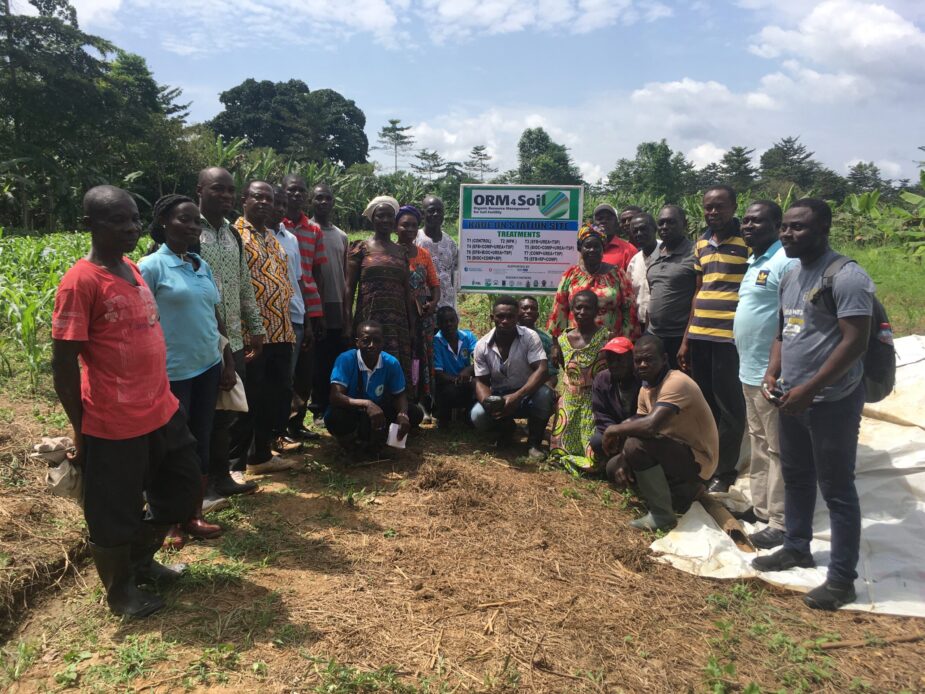
Picture 2:Members of the Kade Innovation Platform.Credit: Sara Baga
The agricultural residues produced in Kade are ideal for the job, according to Godfred Ofosu-Budu, an agricultural research scientist at the University of Ghana and coordinator with the ORM4Soil project team. “I’ve evaluated different feedstocks and I realised that the empty-fruit-bunch-based or the cocoa-pod-based compost is perfect – very high quality.”
Ofosu-Budu knew how local farmers could benefit from turning the wasted resources into compost. He also knew it would take some convincing to switch from chemical fertilisers. He set out to win them over: developing compost formulations with the farmers’ input, inviting them to observe application at planting time, and again at harvest time. “They were all participants,” says Ofosu-Budu. “They saw that this is evidence-based.”
The groundwork paid off. When the ORM4Soil project kicked off by inviting farmers to form ‘innovation platforms’ –forums to discuss solutions to agricultural problems together with researchers, extension workers and traders – the researchers found that Kade’s farmers were already self-organised. Ofosu-Budu’s work had opened their eyes to the value of leftover empty fruit bunch and cocoa pods. Eventually, they formed an association to develop leftover organic resources into a business.
“It’s a bit of a shift of perception and a shift of habit at the same time,” says Sousa. “For me it was really beautiful to see how they organised. As external partners, this is where you can really create change or activate change, to fuel already existing energy.”
Support and an evidence base
The initiative gathered momentum – more people started to get involved – and bred new possibilities of turning waste into compost, such as rice husks made into biochar.
But it soon stumbled on practicalities.
Fields of empty fruit bunches make for huge bulk. Before composting, Kade’s farmers need to transport the material and crush it down into smaller pieces. The cost and drudgery of doing this manually wasn’t an attractive proposition.
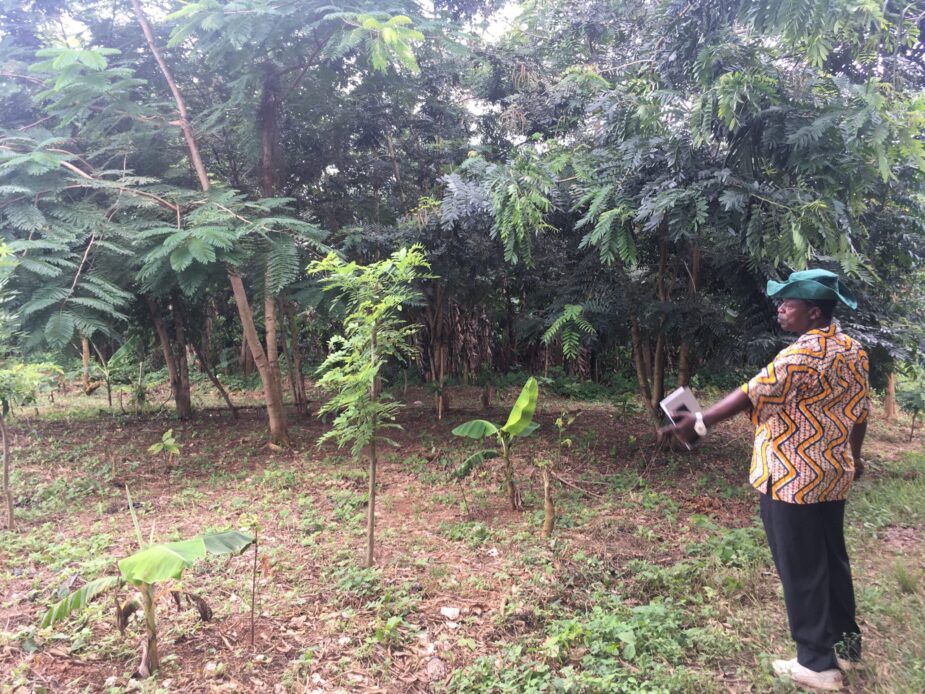
Picture 3: Professor Ofosu-Budu explaining the benefits of compost and mulch with organic resources. Credit: Sara Baga
The association started to collect funds to buy a shredder machine and a tricycle. But progress was slow. Seeing that the farmers were still far from their goal was the trigger for Sousa to develop the latest phase of the project. Apart from connecting related initiatives and helpingthe association to buy equipment, the project will also train local farmers in the various techniques of producing organic fertilizer, and work towards scaling up production by collaborating with business partners.
There are still challenges to overcome. The shredder, already bought from China, has yet to reach Ghana. Despite the latest round of funding, finances remain tight. Then there’s the human factor. “I deal with different people, [with] different backgrounds and different visions,” says Ofosu-Budu. “It’s not an easy task.”
But there’s a foundation of trust in Kade, and that goes back to the community’s connection with Ofosu-Budu as a respected professional, according to Fliessbach. “One of the often-published reasons for farmers not adopting technologies is that they often get different messages,” he explains. “If you hear conflicting messages, trust becomes very important.”
“If you hear conflicting messages, trust becomes very important“
Andreas Fliessbach, Research Institute of Organic Agriculture
Ofosu-Budu sees a bright future for the venture. A rise in health-conscious consumers means organic vegetables are set to become more popular in Ghana. That bodes well for an initiative gearing up to produce top-quality organic fertiliser. “We want to develop different types of compost, so that we can evaluate [them] for different crops and for different soil types,” he explains.
The goal is to produce a solid evidence base. This will help farmers understand what to expect from the process and make strategic decisions about the technical and business sides of the operation. It will also help persuade policy makers that turning agricultural waste into organic compost is feasible in Ghana, says Ofosu-Budu. “I’ll be inviting government officials to come and see [for] themselves,” he says. “So at the end of the day, it’ll not be a ‘cooked’ story. It will be a very practical way of developing an adoptable technology.”
Related Posts
The Green Vein: Agroecology Rising in West Africa
WOMEN EMPOWERED: Vital Work Made Visible
Sources
r4d project:
ORM4Soil: Farmer-driven Organic Resource Management for Soil Fertility
Transformation Accelerating Initiative:
Farmer-driven organic resource management to build soil fertility (ORM4Soil)
Credit title picture:
Sara Baga
About the author:
Anita Makri is a freelance editor/writer/producer based in London, UK.
Produced by:
Anita Makri
